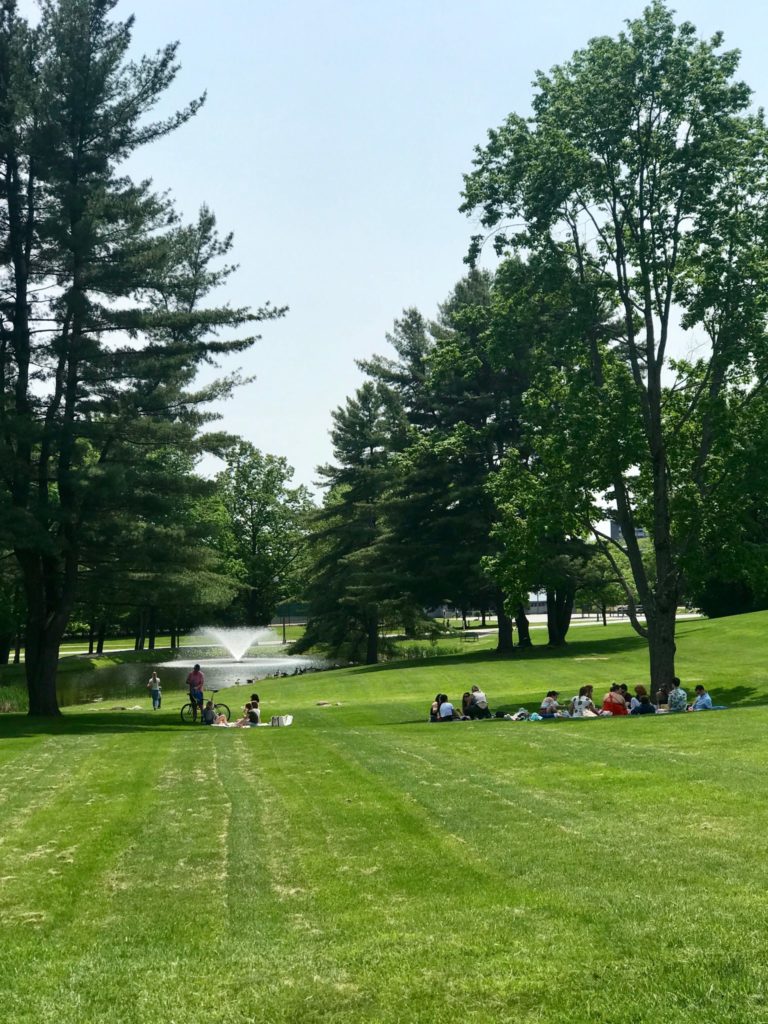
The whole hookup trend fascinates me. I get that for some people, sex with no strings can be fun and exciting. But most of the young people I talk with either don’t have much casual sex or don’t really like it when they do. So how did hooking up get to be such a big part of young adult culture?
I got many answers from Lisa Wade’s fascinating book American Hookup. One mystery it solved for me: The “don’t want to do it” and the “don’t really like it” people I talk to aren’t outliers—they’re the majority.
Not Everyone Is Doing It
Hookup culture on campuses makes it seem like everyone is having casual sex all the time, but that’s not true. “The average graduating senior reports hooking up just eight times in four years,” Wade writes. “That amounts to one hookup per semester”—not the every-weekend thing many college students think their peers are doing.
Beyond that, Wade found that one third of students opt out entirely from hooking up. They said casual sex didn’t interest them and they were more interested in a relationship. Or they had religious or other reasons for waiting. Or they already had a monogamous relationship. Or they had too many demands on their time, like working while also attending college.
Sadly, some students who opt out of hooking up feel isolated. They think they’re the only one who’s not doing it…and that’s just not true.
Not Everyone Who Hooks Up Is into It
Wade cites research from sociologist Jeremy Uecker and his colleagues who looked at motivations among those students who chose to hook up.
25%: “It’s fun.” They found that among college students who hook up, about a quarter were enthusiastic about the excitement and pleasure of hooking up. These are often the most attractive kids, who have an easy time finding partners, and those with an adventurous view of sex. For that fairly small group of students, hookup culture works.
25%: “I dunno.” About a quarter of students who hooked up weren’t really clear about why they were doing it. They thought it was something they were “supposed” to do; they were unenthusiastic about hooking up but were willing to give it a try.
50%: “I might find someone.” About half the students—the largest group—who told Uecker they’d hooked up did it because they really want a monogamous relationship and thought hooking up would help them get one. That isn’t crazy; many college relationships do start with a hookup. Uecker’s team called these students “utilitarians”: for them, hooking up wasn’t that great, but might be a means to an end.
This all fits what I hear anecdotally. Hooking up means different things to different people. It works for some but not for others. Most notable, though, is the fact that many young people want relationships more than they want casual sex. That doesn’t surprise me…but it’s a bummer so many of them think hooking up may be the best way to get there.
(If you want to look it up: Uecker, Jeremy E., and Brandon C. Martinez. 2017. “When and Why Women Regret Sex in Hookups More Than Men Do: An Analysis of the Online College Social Life Survey.” The Sociological Quarterly 58(3): 470-494.)
Changes Over Time
Feelings about hookups are fluid. Any given person may like casual sex at one point in their life but not another. Experiences with hooking up usually change over the years.
Some kids come to college not interested in hooking up but end up trying it and liking it. Others try it and decide it’s not for them.
I was interested to learn that hookups are most common freshman year of college. Many students, Wade found, hooked up early in their time at college because they wanted to “have the experience” or felt it was “what college kids do.”
But by the end of freshman year and into later years, many students hooked up less. Hooking up was supposed to be pure fun…but it turned out to have downsides. Many students decided casual sex wasn’t for them. Or they got into a relationship. Or they made good friends, got busy with academics, and found the whole hookup scene less appealing—they had better things to do.
After college, young people are less likely to continue hooking up. Wade found that they might still have casual partners but are more likely to actually date (although dating could be uncomfortable until they learned the skills).
The Headlines Aren’t the Story
So, there’s a lot more going on about hookups than the sensational stories you may hear in the media. Hookup culture has a firm hold on many campuses, but students’ actual lives are a lot more nuanced.
Young adults are motivated by more than just sex; they want relationships, too. I wish we’d all be having more conversations about casual sex, loving sex, and what it all means to each of us.